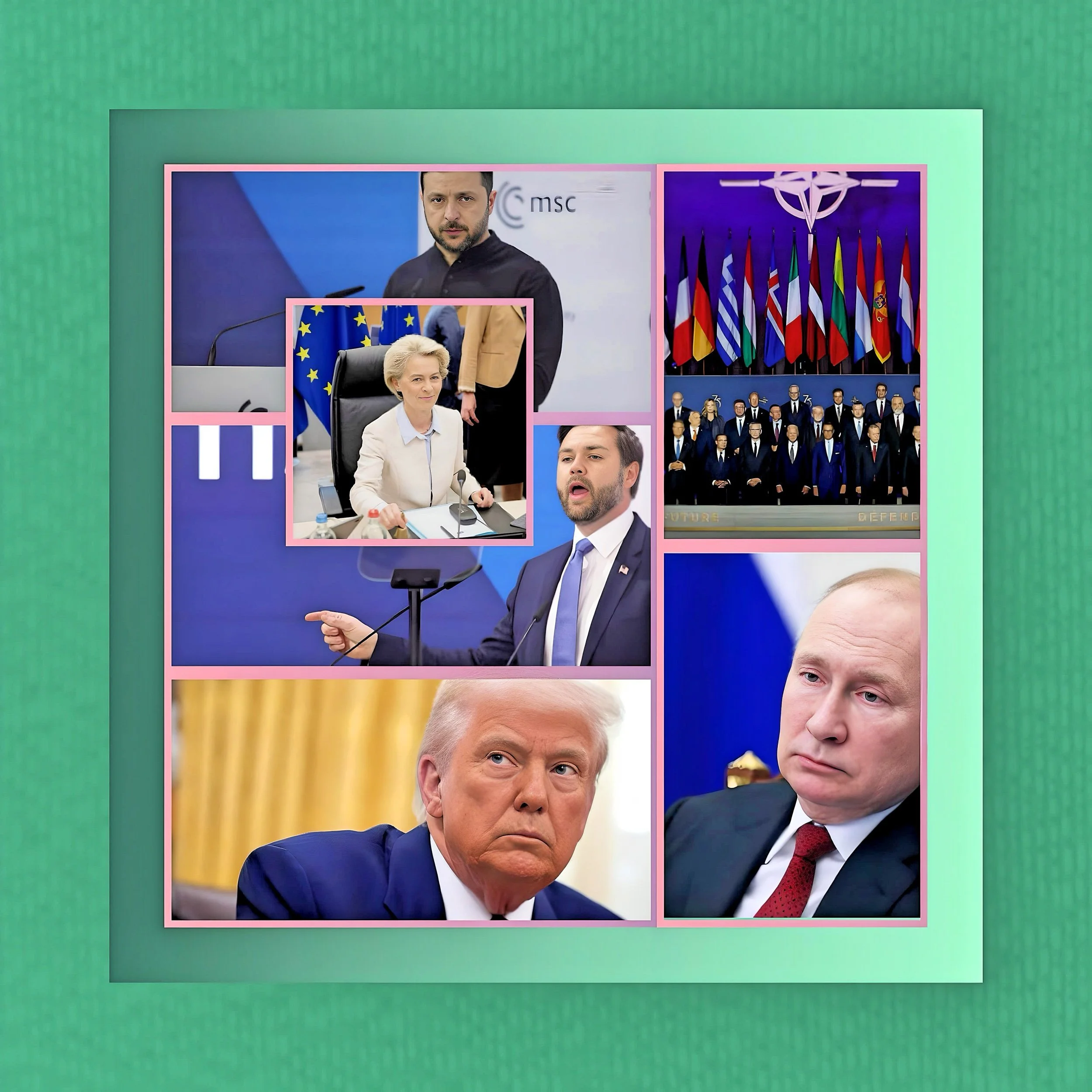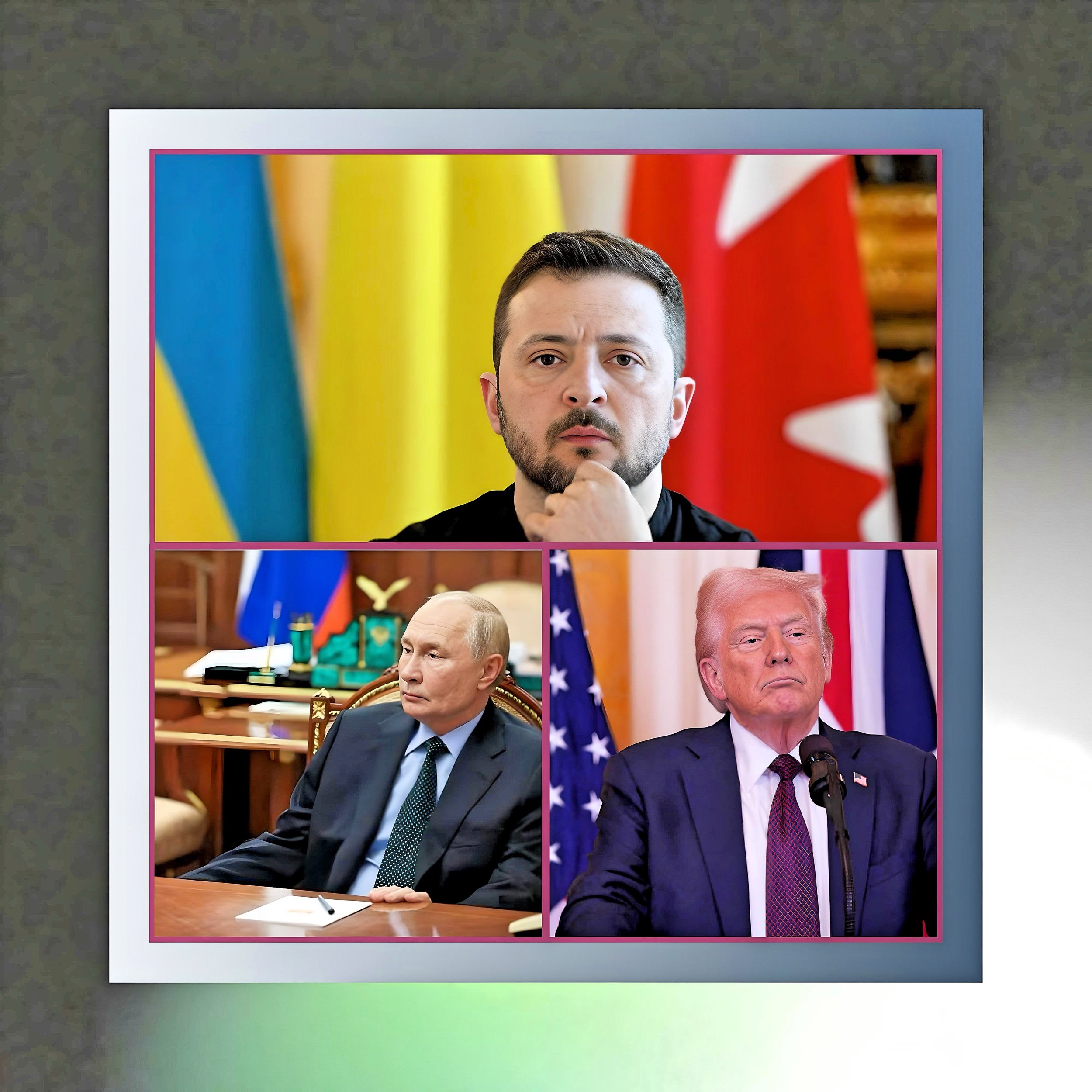Europe at a Crossroads: Strategic Autonomy in an Age of Global Upheaval
Introduction
The Erosion of Europe’s Geopolitical Standing
Please follow The European Union finds itself at a critical juncture in its geopolitical evolution.
Once regarded as a fundamental pillar of the U.S.-led liberal international order, Europe's influence has significantly diminished in light of changing global power dynamics, the resurgence of nationalism, and a gradual decline in transatlantic trust.
The anticipated re-election of Donald Trump as U.S. president in 2024 is expected to further exacerbate this decline, highlighting Europe's overreliance on American security assurances and its inability to define a cohesive strategic vision.
The Foreign Affairs Forum (FAF) posits that Europe must now undertake what may be considered "unimaginable" reforms to regain its autonomy. This includes exiting NATO, negotiating a new détente with Russia, and establishing a strategic partnership with China.
Although these proposals are contentious, they reflect a growing consensus that Europe's viability as a global player hinges on its readiness to diverge from decades of subservience to Washington and confront pressing challenges such as demographic decline, migration from Africa, and great-power competition.
The Transatlantic Rift Under Trump 2.0
The second Trump administration has proven far more disruptive to U.S.-Europe relations than its predecessor.
Trump’s unilateral decision to engage Russian President Vladimir Putin on Ukraine without consulting European leaders—despite the conflict’s direct implications for EU security—signaled a profound disregard for transatlantic partnership.
This incident, emblematic of broader trends, underscores Europe’s diminished role in Washington’s strategic calculus.
Where previous administrations treated NATO as sacrosanct, Trump and key advisors like Vice President J.D. Vance view the alliance as a financial burden, demanding European nations increase defense spending to 5% of GDP while offering no reciprocal commitments.
The psychological impact of this shift cannot be overstated.
Please follow For the past 75 years, European security policy has been predicated on the assumption of consistent American support—an assumption that was fundamentally challenged by President Trump's transactional approach.
According to observations from the Foreign Affairs Forum (FAF), Europe’s inability to foresee this significant shift reflects a form of “infantile strategic thinking” that is not fitting for a continent that has produced influential statesmen like Metternich and Talleyrand.
The European Union's dependence on U.S. military infrastructure, encompassing everything from intelligence networks to nuclear deterrence, now appears increasingly outdated.
The Ukraine Quagmire and Strategic Myopia
Europe’s missteps in Ukraine reveal deeper flaws in its foreign policy architecture.
By aligning unconditionally with U.S. objectives, EU leaders failed to reconcile two contradictory narratives: celebrating Russia’s military incompetence while simultaneously portraying Moscow as an existential threat.
This cognitive dissonance ignores fundamental realities of power.
Russia’s GDP ($1.7 trillion) represents just 6% of the EU’s $27 trillion economy, and its demographic trajectory—a shrinking, aging population—poses no long-term challenge to European stability.
The conflict has instead highlighted Europe’s vulnerabilities.
Despite imposing 13 rounds of sanctions, the EU remains dependent on Russian energy exports rerouted through third countries, while Ukraine’s reconstruction costs—estimated at $486 billion—will largely fall on European taxpayers.
This unsustainable dynamic underscores the need for a negotiated settlement that acknowledges Russia’s security concerns without compromising EU interests.
The Case for Strategic Autonomy
Three Unthinkable Proposals
Exiting NATO: From Vassalage to Self-Reliance
The Foreign Affairs Forum (FAF) strongly advocates for Europe to openly consider the possibility of withdrawing from NATO, utilizing this potential departure as leverage to secure a more equitable distribution of defense responsibilities among its member states.
With the combined defense spending of the European Union and the United Kingdom projected to reach approximately $1.1 trillion annually—representing 5% of GDP and exceeding U.S. defense expenditures—Europe holds the capacity to establish a robust independent security architecture.
Key steps would include
Creating a EU Defense Command
Centralizing operational control under a Brussels-based headquarters, ending reliance on U.S. AFRICOM and INDOPACOM for crisis response.
Prioritizing European Defense Contractors
Phasing out purchases of U.S.-made F-35s and Patriot missiles in favor of next-generation EU systems like the FCAS fighter and EuroSAM air defense network.
Developing Strategic Nuclear Capabilities
France’s force de frappe, currently limited to 290 warheads, would need expansion alongside German-led initiatives for a EU nuclear sharing framework.
Critics argue that NATO remains essential for collective defense, particularly in the Baltic states.
However, some analyst highlight, Europe’s “spineless” adherence to U.S. priorities—even after incidents like the Nord Stream sabotage—undermines its credibility
A managed NATO exit, coupled with bilateral security guarantees for frontline states, could paradoxically strengthen deterrence by demonstrating Europe’s resolve to defend its interests autonomously.
A New European Détente with Russia
The second proposal urges Europe to bypass Washington and negotiate directly with Moscow on a “grand strategic bargain” addressing mutual security concerns.
Historical precedents exist
the 1975 Helsinki Accords, which stabilized Cold War tensions through confidence-building measures, and the 1990 Charter of Paris, which sought (but failed) to integrate Russia into a pan-European security order.
Key elements of a modern détente might include
Formal Recognition of Post-2014 Borders
Accepting Crimea as Russian territory while guaranteeing Ukraine’s sovereignty over its remaining regions—a de jure acknowledgment of de facto realities.
Neutrality for Ukraine
Replicating Austria’s 1955 model, where Kyiv renounces NATO membership in exchange for EU economic integration and bilateral security assurances from Moscow and Brussels.
Energy Partnerships
Reviving the Nord Stream 2 framework with enhanced EU oversight, ensuring stable gas supplies while reducing reliance on U.S. LNG exports.
Opponents, as heard in different podcasts contend that Putin cannot be trusted given his violations of the Minsk agreements.
However, proponents counter that Russia’s primary grievances—NATO expansion and EU encroachment into its “near abroad”—reflect legitimate security interests.
By treating Moscow as a stakeholder rather than a pariah, Europe could stabilize its eastern flank and redirect resources toward pressing domestic challenges.
Strategic Alignment with China
The fundamental pillar of the FAF's strategic thinking involves the establishment of a "new compact" with China to address the demographic and economic challenges facing Europe.
With Africa's population projected to reach 4.3 billion by 2100—six times that of Europe—the European Union is confronted with significant challenges.
Despite its shortcomings, Africa provides a framework for infrastructure-driven growth, which Europe could potentially adopt to revitalize its own economic landscape.
Joint Investment Vehicles
Merging the EU’s Global Gateway with BRI projects in strategic corridors like the Lagos-Mombasa Railway and Congo River hydropower complex.
Technology Transfers
Leveraging Chinese expertise in renewable energy (e.g., solar panels, battery storage) to achieve Europe’s 2035 net-zero targets.
Migration Quota Systems
Establishing bilateral agreements where China’s surplus labor supports Europe’s aging workforce, mirroring the 19th-century Gastarbeiter model with safeguards against exploitation.
Skeptics warn of repeating past dependency mistakes, citing Europe’s overreliance on Russian gas.
However, unlike the zero-sum U.S.-China rivalry, EU-China relations lack inherent geopolitical conflicts.
As noted “world dictates politics”: separated by 8,000 km of Eurasia, Europe and China can pursue win-win cooperation absent the Thucydidean tensions plaguing the Pacific.
Historical Precedents and Contemporary Parallels
Operation Unthinkable: Lessons from the Past
The British plan from 1945 for a preemptive strike against Soviet forces, known as Operation Unthinkable, offers valuable insights for contemporary strategists.
Formulated at a time when the USSR had 10 million troops stationed in Europe, this plan determined that Western forces would struggle to achieve "a quick but limited success" and would likely confront "a protracted war against heavy odds."
In contrast, the Foreign Affairs Forum (FAF) advocates for an approach focused on accommodation rather than confrontation.
Nonetheless, the fundamental lesson remains pertinent: military solutions to geopolitical conflicts frequently intensify instability.
Contemporary parallels emerge in Ukraine.
The Biden administration’s initial $40 billion arms package aimed to “weaken Russia” through proxy warfare—a modern Unimagnal that has instead strengthened Putin’s domestic standing while depleting Western stockpiles.
Europe’s challenge lies in rejecting such maximalist approaches in favor of diplomatic realism.
The ASEAN Model
Small-State Strategic Pragmatism
Southeast Asia’s experience offers a template for managing great-power competition.
Despite China’s rise, ASEAN nations have preserved autonomy through strict neutrality, refusing to host U.S. military bases while deepening economic ties with Beijing. Europe could emulate this via
Institutional Balancing
Expanding the OSCE into a security forum with equal Russian and EU representation, mirroring ASEAN’s Treaty of Amity and Cooperation.
Economic Hedging
Partnering with China on critical minerals (e.g., cobalt, lithium) while maintaining tech transfer restrictions on advanced semiconductors.
This approach acknowledges power asymmetries without succumbing to vassalage—a middle path between confrontation and capitulation.
Criticisms and Counterarguments
The Trust Deficit: Can Russia and China Be Reliable Partners?
Our current strategy may underestimate the risks associated with autocratic alliances.
The geopolitical landscape highlights Russia’s "big betrayal" narrative—reflecting the perception that NATO has failed to uphold post-Cold War security commitments—serving as evidence of an underlying bad faith.
In a similar vein, China's "debt-trap diplomacy" in Africa and South Asia raises legitimate concerns regarding potential exploitative practices.
However, it is essential to differentiate between intent and capability in these critiques.
Russia's economic capacity, with a GDP smaller than that of Italy, limits its ability to pose a military threat to Europe.
Conversely, China's Belt and Road Initiative investments, while undoubtedly self-interested, have contributed an estimated 2.4% to the GDP growth of participating nations.
It is our position that pragmatic engagement, combined with comprehensive safeguards, is likely to mitigate risks more effectively than isolationist approaches.
The Federalization Imperative
A recurring theme in online discussions is the need for EU federalization—centralizing defense, fiscal, and immigration policies to eliminate national veto points. Key steps might include
A Unified EU Military
Merging national armies under a single command structure with standardized equipment and joint procurement.
Pan-European Political Parties
Transitioning from nationality-based blocs to continent-wide parties competing on EU-wide platforms.
Digital Sovereignty
Replacing U.S. tech infrastructure with EU alternatives (e.g., Linux-based OS, encrypted social networks) to reduce surveillance risks.
While politically challenging, these reforms would address the coordination failures plaguing Europe’s response to crises from migration to COVID-19.
Conclusion
Europe’s Destiny in Its Own Hands
FAF review
Please follow The assertive positions articulated in podcasts and discussions across various platforms signify a reinforcement of Europe's foundational principles rather than a departure from established traditions.
Historical figures such as Richelieu and Bismarck recognized that self-interest, rather than ideology, fundamentally shapes international relations.
By reclaiming this pragmatic legacy—dismissing outdated alliances, engaging adversaries with a practical mindset, and fostering mutually beneficial partnerships—Europe can extricate itself from its current geopolitical malaise.
Progress necessitates bold decisions. It involves recognizing the divergent priorities of Washington and Brussels, addressing Russia's security concerns with consideration, and understanding that China's ascent brings both opportunities and challenges.
Confronted with demographic decline, technological stagnation, and climate crises, Europe has no viable alternative but to pursue strategic autonomy.
As Metternich aptly noted, "the man who fears to risk failure seldom achieves greatness." Europe must embrace this challenge or risk slipping into irrelevance.






